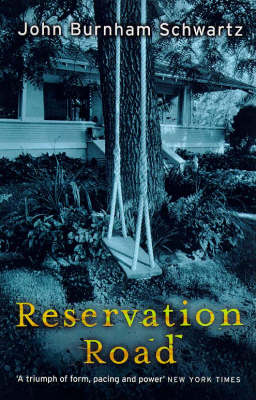Reviewed by gmcgregor on
Turns out, not really. Not because it was too emotionally charged, but because it was boring and uncentered. The story is told in rotating chapters, varying perspective between Dwight (the driver that hits and kills ten year-old Josh), Ethan (Josh's father), and Grace (Josh's mother). The novel doesn't spend enough sustained time with any of the characters to really dig into them more than on a surface level: Dwight feels guilty, but not enough so to jeopardize his relationship with his own ten year-old son by turning himself in; Ethan feels impotent rage at his powerlessness in the situation, and Grace just withdraws from everything. I did find myself wondering why Grace was written in the third person while the men were written in the first person. Did Schwartz not feel comfortable writing first-person perspective for a woman? Is it supposed to be symbolic of her emotional deadening with grief, that she doesn't even have the willpower to view herself as the center of her own story anymore? I'm honestly not sure. None of the characters grows or changes, everyone just stays stuck in their patterns. Which is probably realistic, I can't even imagine what the process of mourning the loss of a child would be like and hope I never have to know. But it doesn't make for enjoyable or even very interesting reading.
Reading updates
- Started reading
- 18 October, 2015: Finished reading
- 18 October, 2015: Reviewed

